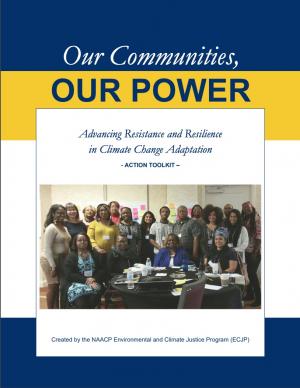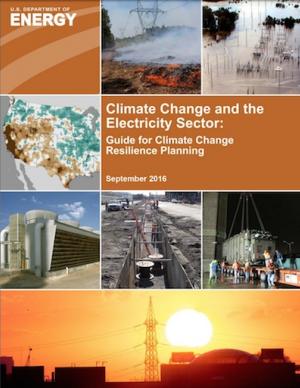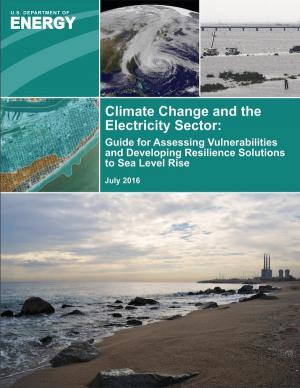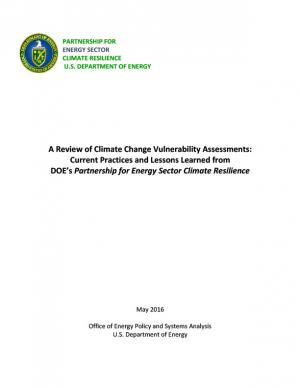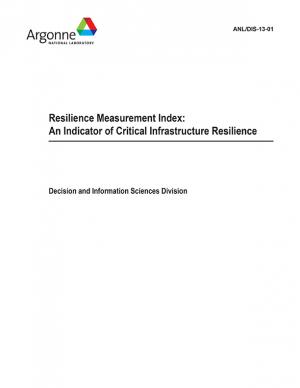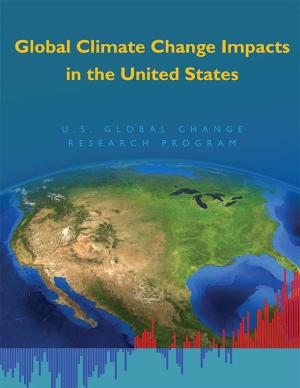Access a range of climate-related reports issued by government agencies and scientific organizations. Browse the reports listed below, or filter by scope, content, or focus in the boxes above. To expand your results, click the Clear Filters link.
This is the FY22 edition of the U.S. Gllobal Change Research Program's annual report to Congress mandated by the the Global Change Research Act. The report provides an overview of the Program’s progress in delivering on its strategic goals as well as a summary of agency expenditures under USGCRP’s budget crosscut.
The Beloved Community is a vision for our future where all people share equally in the wealth and bounty of the earth, where we protect its abundance, diversity, and beauty for future generations. In this vision of liberation, racism, exploitation, and domination are replaced by democracy, cooperation, interdependence, and love. To get there, we pursue transformative, systems-change solutions. What do we mean by this? The root causes of the problems our communities face—like climate change, racism, and economic inequality—are all deeply connected. Since the problems are connected, so are the solutions. The purpose of this toolkit is to put us on the path toward achieving this vision. Through the context of building equity and resilience into climate adaptation planning, we introduce strategies to transform our communities and, by extension, society. Our ultimate goal is to create lasting and systemic change. At the same time, we recognize the urgency of the issues our communities face and the need to take action now. That is why we pursue change at every scale—from policy changes to community-based projects—to institute the transformative change we need to uphold our vision of the beloved community.
This guide provides basic assistance to electric utilities and other stakeholders in assessing vulnerabilities to climate change and extreme weather and in identifying an appropriate portfolio of resilience solutions. The guide is also part of a broader DOE effort to inform preparedness, resilience planning, and response initiatives.
This report provides guidance for evaluating how sea level rise and storm surge hazards may impact the ability to provide electricity service, and for identifying and implementing solutions to enhance resilience. The document includes examples of various tools, methods, and information resources that can assist in resiliency planning. In addition, climate resilience challenges and opportunities for different types of generation, transmission, and distribution assets are identified. It also includes general methods on how to estimate the costs and benefits of resilience measures.
A number of utilities across the country participating in the Department of Energy's Partnership for Energy Sector Climate Resilience have completed climate change vulnerability assessments. They used a variety of approaches to examine vulnerabilities affecting different categories of utility assets and operations, and the climate stressors of concern varied by region and by utility. This report details current practices, lessons learned, and needs identified by partners in conducting these assessments.
The National Climate Assessment assesses the science of climate change and its impacts across the United States, now and throughout this century. It documents climate change-related impacts and responses for various sectors and regions, with the goal of better informing public and private decision making at all levels.
The assessment draws from a large body of scientific peer-reviewed research, technical input reports, and other publicly available sources; all sources meet the standards of the Information Quality Act. The report was extensively reviewed by the public and experts, including a panel of the National Academy of Sciences, the 13 federal agencies of the U.S. Global Change Research Program, and the Federal Committee on Environment, Natural Resources, and Sustainability.
This report examines current and potential future impacts of climate trends on the U.S. energy sector.
The Resilience Measurement Index (RMI) was formulated to capture the fundamental aspects of resilience for critical infrastructure with respect to all hazards. The RMI methodology supports decision making related to risk management, disaster response, and maintenance of business continuity. It complements other indices that have been developed―the Protective Measures Index and the Consequences Measurement Index―and thus, in combination with other tools, allows critical infrastructure to be compared in terms of resilience, vulnerability, consequences, and ultimately risk.
This Technical Input to the Third National Climate Assessment examines vulnerabilities of infrastructures and urban systems to extreme weather and other events associated with climate change.
This report is the Second National Climate Assessment, summarizing the science and impacts of climate change on the United States. The report discusses climate-related impacts for various societal and environmental sectors and regions across the nation. It is an authoritative scientific report written in plain language, with the goal of better informing public and private decision making at all levels.


